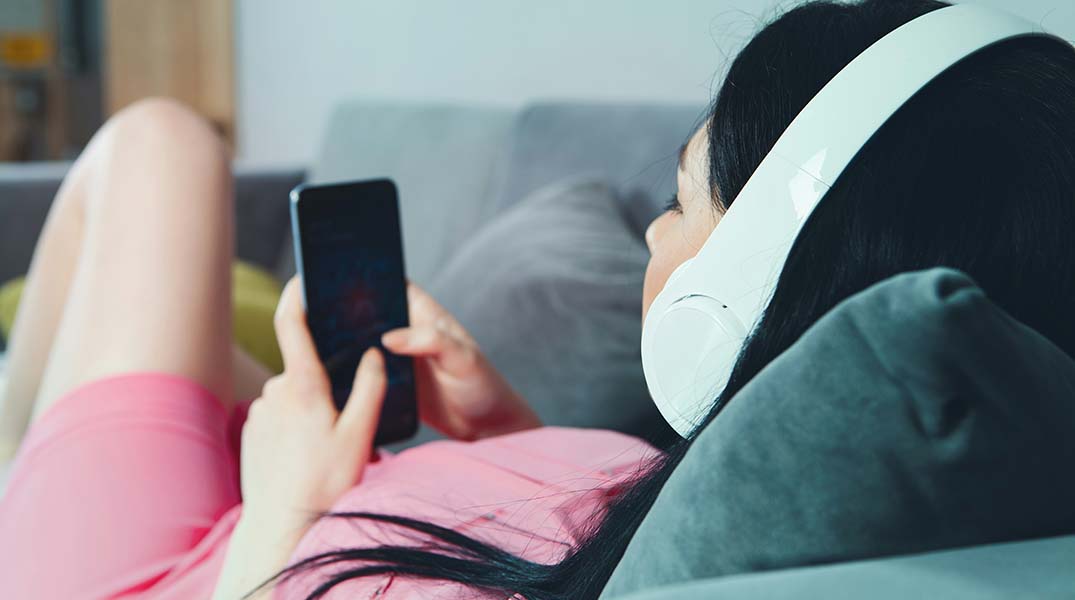In a time when teenagers are more digitally connected than ever, 38% of teens say they spend too much time on their smartphone, according to a new Pew Research Centre report. About a quarter say the same regarding their social media use.
But teens’ experiences vary by gender. Girls are more likely than boys to say they spend too much time on their phone (44% versus 33%) or social media (32% versus 22%).
The new report, based on a survey of 1 453 US teenagers ages 13 to 17 and their parents conducted in September and October 2023, found that roughly four-in-ten teens (39%) say they have cut back on their time on social media. A similar share says the same about their phone (36%).
Still, most teens have not limited their smartphone (63%) or social media (60%) use.
Teens encounter a range of emotions when they don’t have their phones, but were asked about five specific ones.
Roughly three-quarters of teens say it often or sometimes makes them feel happy (74%) or peaceful (72%) when they don’t have their smartphone. Smaller but notable shares of teens equate not having their phone with more negative emotions. Teens say not having their phone at least sometimes makes them feel anxious (44%), upset (40%) and lonely (39%).
At the same time, most teens think the benefits of smartphones outweigh the harms for people their age. Seven in 10 teens say smartphones provide more benefits than harms for people their age, while a smaller share (30%) take the opposing view, saying there are more harms than benefits.
The survey also shows that teens see these devices’ impacts on specific aspects of life differently. Majorities of teens say smartphones make it a little or a lot easier for people their age to pursue hobbies and interests (69%) and be creative (65%). Close to half (45%) say these devices have made it easier for youth to do well in school.
Meanwhile, roughly four in 10 teens say smartphones make it easier for teens to develop healthy friendships, while 31% each say they make it harder or neither easier nor harder to do this.
A larger percentage of teens say smartphones make learning good social skills harder (42%) rather than easier (30%). About three in 10 say it neither helps nor hurts.
In addition to teens themselves, the survey asked their parents about navigating raising teens in the smartphone age. Key findings include:
* It’s common for parents to look through their teen’s phone – and many of their teens know it. Half of parents of teens say they look through their teen’s phone. When we asked teens if they thought their parents ever look through their phones, 43% believed this had happened. Parents of younger teens are more likely to say they do this than parents of older teens.
* Parents and teens are equally likely to say they argue about phone use. Roughly four in 10 parents and teens (38% each) say they at least sometimes argue with each other about how much time their teen spends on the phone. This includes 10% in each group who say this happens often. Still, 25% of parents say they never argue with their teen about this, while 31% of teens say the same.
* Most parents prioritise managing the amount of time their teen spends on the phone. Roughly three-quarters of parents (76%) say managing how much time their teen spends on the phone is an important or a top priority. Still, 19% of parents don’t consider this a priority.
* There’s a nearly even split between parents who restrict their teen’s time on their phone (47%) and those who don’t (48%). Parents of younger teens are far more likely to regulate their child’s screen time compared with parents of older teens (62% versus 37%).
* Managing screen time can feel like an uphill battle for some parents. About four in 10 say it’s hard to manage how much time their teen spends on their phone. Smaller shares (26% each) say this is easy to do or that it’s neither easy nor hard to do.
* Like teens, parents are far more likely to say they spend too much rather than not enough time on their phone. About half of parents (47%) say they spend too much time on their smartphone. Just 5% think they spend too little time on it. And 45% believe they spend the right amount of time on their phone.
* When it comes to distracted parenting, parents paint a rosier picture than teens. Nearly half of teens (46%) say their parent is at least sometimes distracted by their phone when they’re trying to talk to them, including 8% who say this happens often. But when parents were asked to assess their own behaviour, fewer – 31% – say this happens regularly.

